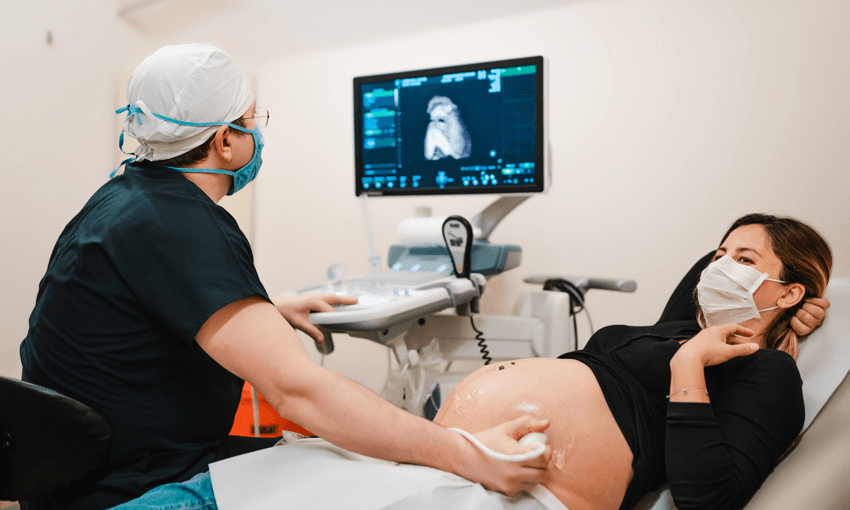Dr Michelle Wise, an obstetrics and gynaecology specialist, answers some of the most frequently asked questions from pregnant women right now.
Are pregnant women more vulnerable than non-pregnant women in getting Covid-19?
The short answer is no. The research from around the world shows that pregnant women are not more likely than non-pregnant adults to get Covid-19. That is why we do not recommend that all pregnant women get tested for Covid-19 unless they meet the Ministry of Health criteria for testing.
To date, there have only been a handful of women who have contracted Covid-19 while pregnant in New Zealand.
How do pregnant women prevent getting Covid-19?
Regular and frequent handwashing, avoiding touching eyes, nose and mouth, social distancing, and following Ministry of Health advice for all New Zealanders. If you are pregnant and are contact traced by health officials, please tell your midwife.
If pregnant women get Covid-19, are they more likely to miscarry? What about becoming unwell?
Pregnant women who get Covid-19 are not at increased risk of having a miscarriage. A Covid-19 infection does not cause fetal abnormalities. Most pregnant women who get Covid-19 will have mild symptoms only and make a full recovery. Approximately one in three pregnant women will need to be hospitalised, and about one in 10 of hospitalised pregnant women will need admission to intensive care. Women who do get hospitalised tend to be in the third trimester (28 weeks onwards), over 35 years old, or have underlying medical conditions such as high blood pressure and diabetes.
Is it still safe to get the usual vaccines during pregnancy?
Yes, we recommend getting the flu shot and the vaccine for whooping cough, which is the usual advice during pregnancy.
Will I still be able to see my midwife during pregnancy?
Routine maternity care during pregnancy should continue. Visits may be less often, shorter, or occur over the phone or video if possible. If a face-to-face visit is needed (for example, to check blood pressure or listen to the baby’s heartbeat), then the midwife may be wearing PPE. If a pregnant woman has symptoms, and it is safe to delay the appointment until she feels better, that is another option. Ultrasound scans and blood tests should still be available at the hospital and in the community as before.
Is it safe to go to the hospital? Can people visit?
All hospitals are still open even during alert levels two and three, providing 24/7 care to pregnant women who need to be checked by a midwife or doctor. But there will be screening questions about symptoms and contacts. Check with your local hospital about their visitor policy. Most hospitals allow a support person during labour and birth during levels two and three.
For a pregnant woman with Covid-19, can she pass on the infection to her baby?
It is uncommon for the infection to be transmitted to the baby (2%). In the cases where newborn babies tested positive for the virus just after birth, they remained healthy and well. We are keeping a close eye on the research coming from countries with higher rates of the virus to better answer this question.
Can women with Covid-19 breastfeed?
Yes. There is no evidence that the infection can pass through breastmilk. However, women should wash their hands before feeding their baby and wear a mask.
Where do I get reliable information about Covid-19 and pregnancy?
The Ministry of Health has resources for pregnant women and those who have recently given birth. You can also visit the Royal Australian and New Zealand College of Obstetricians and Gynaecologists (RANZCOG) and the New Zealand College of Midwives (NZCOM) website for more information.
Dr Michelle Wise is an obstetrics and gynaecology specialist at the University of Auckland

